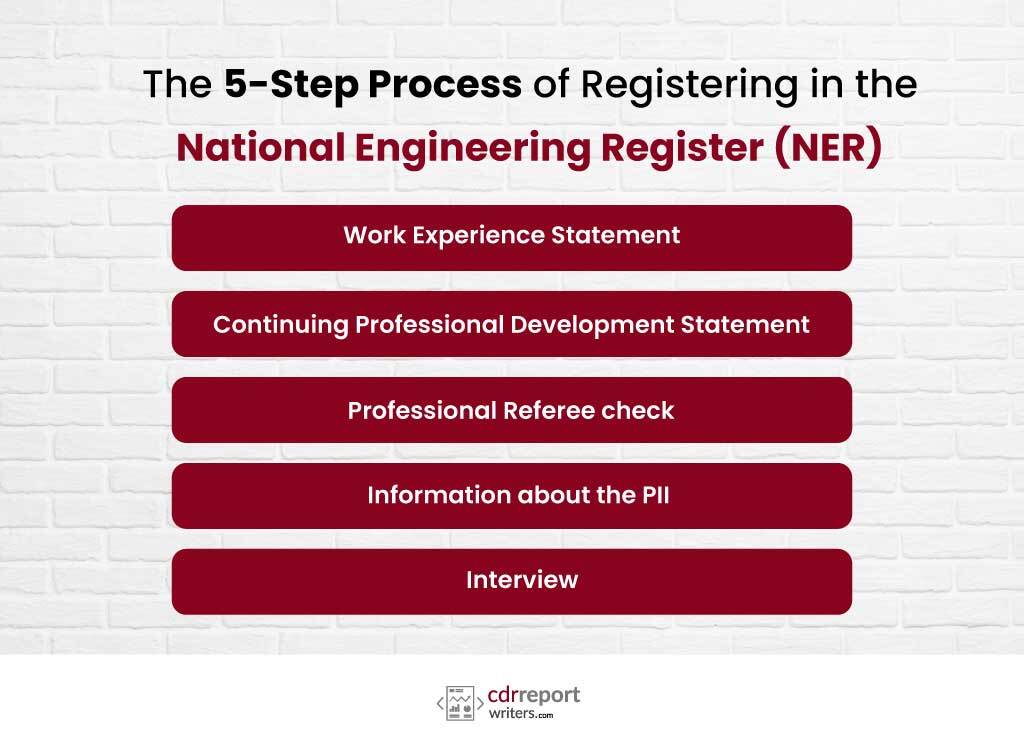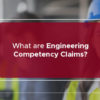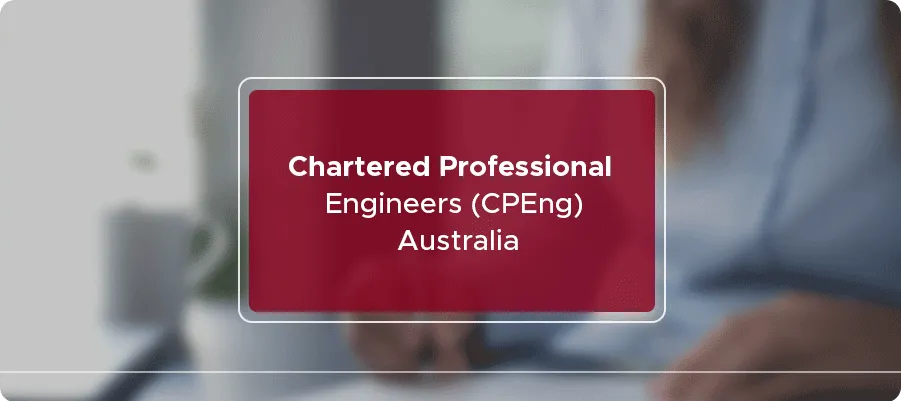
What is National Engineering Register (NER)?
National Engineering Register (NER) is a national framework introduced by Engineers Australia in 2015 that provides a way to recognize engineers who meet the industry’s high degree of skill, qualification, ability, and professionalism.
This blog contains the detail about National Engineering Register. Engineers Australia is putting forth a lot of effort to support outstanding engineers and provide them with a worldwide platform. However, it is not only about obtaining a job in the nation. Engineers must work hard to hone their skills and establish themselves in the engineering field. The National Engineer Register (NER) is one attempt at this approach.
Today, Australia is one of the most well-known and attractive locations for engineers. Immigrants will find a modern way of life and a range of employment and business possibilities in the nation. Qualified engineers have a promising future in Australia as businesses are rapidly developing. In the subject of engineering, Australia has already established a significant global footprint.
Why Register on the National Engineering Register (NER)?
Being registered on the NER is preferable to be registered on government registers since government registers lack the NER’s broad Areas of Practice. Employers may use this as a tool to help them make intelligent hiring decisions. Engineers may use it to promote their skills and look for job and business possibilities.
The inclusion of an engineer in the National Engineering Register demonstrates their competence in the engineering field. It is a source of national pride and international acclaim.
Engineers in Australia can utilize the National Engineering Register to demonstrate to potential employers their abilities and work experience. The engineers’ inclusion in the registry indicates that they are trustworthy professionals, and as a result, their social status can increase.
Contents of the National Engineering Register Australia
You may find the following information about the engineers in the National Engineering Register:
- Name of the Engineer
- Australia’s state or territory (for international members – country and postcode)
- Engineers Australia’s post-nominal membership
- Practice Fields
- Occupational Classification
- Suburb name and postal code (Australian Residents)
Engineers can also enter other information in their National Engineering Register profiles, such as emails and phone numbers.
Engineers who join the NER are given an ANNUAL CERTIFICATE, which they can display. This certificate demonstrates the Engineer’s passion and dedication.
What are the Eligibility Criteria to Join National Engineering Register?
Those interested in joining the National Engineering Register must satisfy the following requirements:
- Should possess all of the necessary credentials.
- Professional Indemnity Insurance, or PII, is required.
- At least five years of professional experience is required.
- A commitment to acting ethically.
- CPD or Continuing Professional Development (CPD) currency.
If you are an EA chartered member, you must have and maintain PII insurance. EA members must have a minimum of five years of experience in their field of practice. They should also have relevant work experience and produce a CPD or Continuing Professional Development Statement and proof of PII insurance.
Non-members of EA must first complete the qualification evaluation procedure and have at least 5 years of good work experience, CPD, and PI in the field of practice.
To apply, you must provide the following information:
- Your detail
- Qualification and education
- Experience in the workplace
- Your address for mailing
- Project Management Experience
- a summary of your career
- Information about how to contact you
- Referees who are experts in their field (not friends and relatives)
Learn More: Skilled Employer Sponsored Regional Visa (Subclass 494) 📖📖
Features of NER
The key features of the NER include the following:
1. Accreditation
The NER accredits engineers who have demonstrated a high level of professional competence in their chosen field of engineering. Accreditation is based on a rigorous assessment of an engineer’s academic qualifications, professional experience, and demonstrated competence.
2. Registration
Engineers who the NER has accredited are listed on the national register of Engineers. This provides a means of verifying an engineer’s qualifications and experience and helps to promote the credibility of the engineering profession.
3. Professional development
Engineers who are registered with the NER are required to undertake ongoing professional development activities to maintain their registration. This ensures that they stay up-to-date with the latest developments in their field of engineering and maintain the highest standards of professional competence.
4. Code of Ethics
Engineers who are registered with the NER are bound by a Code of Ethics that sets out the principles of ethical conduct that they must follow in their professional practice. This helps to ensure that engineers maintain the highest standards of integrity and professionalism in their work.
Requirements for registration
To be eligible for registration with the NER, an engineer must meet the following requirements:
1. Qualifications
The engineer must hold a recognized engineering qualification that is accredited by Engineers Australia or an equivalent qualification that the NER has recognized.
2. Professional experience
The engineer must have a minimum of five years of professional experience in their chosen field of engineering.
3. Competence
The engineer must demonstrate a high level of professional competence in their chosen field of engineering through a rigorous assessment process.
4. Continuing professional development
Engineers who are registered with the NER are required to undertake ongoing professional development activities to maintain their registration. This involves completing a minimum of 150 hours of professional development over a three-year period.
The professional development activities must be relevant to the engineer’s field of engineering and must be approved by Engineers Australia. Examples of approved activities include attending conferences, completing online courses, and participating in technical workshops.
5. Code of Ethics
Engineers who are registered with the NER are bound by a Code of Ethics that sets out the principles of ethical conduct that they must follow in their professional practice. This includes maintaining the highest standards of integrity and professionalism and placing the interests of clients and the community ahead of their own personal interests.
6. Fees
Engineers who wish to register with the NER must pay a registration fee, which covers the cost of the accreditation and registration process, as well as ongoing support and resources provided by Engineers Australia.
What are the Different General and Special Areas of Practice of the National Engineering Register (NER)?
You can pick an appropriate practice area based on your formal or informal education, talents, and job experience. It will assist you in determining which areas to concentrate on while composing a work-experience summary. To get the most significant potential opportunity, you must create an excellent work experience statement in your chosen field of practice.
NER Specialized Areas of Practice:
- Amusement rides and devices in-service inspection
- Petroleum Engineering
- Building Services Engineering.
- Oil and Gas pipeline engineering
- Naval architecture
- Leadership and management
- Fire-safety engineering
- Verifier and Subdivision Geotechnics
- Pressure equipment design
- Electronics Engineering (ITEE)
NER General Areas of Practice:
- Aerospace Engineering
- Civil Engineering
- Mechanical Engineering
- Environmental Engineering
- Structural Engineering
- Biomedical Engineering
- Chemical Engineering
- Electrical Engineering
- Information, telecommunication, and electronics
Learn More: Who is eligible to apply CDR for Skilled Visa Migration? ✈️✈️
Benefits of Being Registered on the National Engineering Register
It is a national registration system in Australia that has substantial benefits for everyone. It’s a great alternative to government registrations in places where the practice is regulated by law.
The NER provides a range of benefits for engineers and employers, including:
1. Recognition
Accreditation and registration with the NER are widely recognized as a mark of professional competence and expertise. This can help to enhance an engineer’s career prospects and increase their earning potential.
2. Credibility
The NER provides a means of verifying an engineer’s qualifications and experience, which can help to promote the credibility of the engineering profession.
3. Professional development
The requirement for ongoing professional development helps to ensure that engineers stay up-to-date with the latest developments in their field of engineering, which can help to enhance the quality of their work.
4. Code of Ethics
The Code of Ethics helps to ensure that engineers maintain the highest standards of integrity and professionalism in their work, which can help to enhance the reputation of the engineering profession.
5. Access to resources
Engineers who are registered with the NER have access to a range of resources and support services provided by Engineers Australia, including networking opportunities, technical resources, and professional development programs.
Professionals
- As a means of elevating their stature and gaining recognition
Practitioners
- As a powerful marketing tool.
Employers
- Receive assistance in identifying suitable and qualified engineers in the community.
- It is a fantastic resource for engineering service purchasers.
Learn More: Who is eligible to apply CDR for skilled visa migration? 🧑🏽✈️🏆
How can Engineers Register for National Engineering Register?
If an engineer is already a member of Engineers Australia, they may log in and complete their NER registration using their EA ID.
If an engineer is not a member of Engineers Australia, they must create an EA from the EA ID portal and complete the registration process for National Engineering Register only.
The 5-Step Process of Registering in the National Engineering Register (NER)
Engineers who are members of Engineers Australia and have worked in the engineering sector for at least five years in the last seven years must complete the following procedures to be included in the NER register:

1. Work Experience Statement
Engineers are required to produce a Work Experience Statement that demonstrates their career evidence and practice areas, as per the requirements of Engineers Australia. This statement should highlight their professional experience and provide evidence of their competency in various engineering domains.
2. Continuing Professional Development Statement
Engineers must provide evidence of their Continuing Professional Development (CPD) in the last three years. This means demonstrating that they have completed at least 150 hours of relevant professional development during that time. The CPD Statement should include details about the activities they participated in, their duration, and the learning outcomes.
3. Professional Referee check
Engineers must nominate two Professional Referees who can verify the statements made in their NER application. The Professional Referees should be individuals who have worked closely with the Engineer and can provide detailed information about their professional experience, skills, and expertise.
4. Information about the PII
Engineers must provide information about their Professional Indemnity Insurance (PII), which is mandatory for all practicing engineers in Australia. PII provides financial protection to engineers and their clients in the event of any professional negligence.
5. Interview
The final step of the NER registration process is an interview with the candidate conducted by Engineers Australia. During the interview, the candidate’s Professional Referees are called to provide input on their application. The interview provides an opportunity for the candidate to demonstrate their knowledge, skills, and experience in their chosen field of engineering.
Engineers who are not members of Engineers Australia must complete one more step in addition to the five processes listed above. So, before moving on to the following five phases, the Engineer must first complete a Qualifications Assessment. You may find more information in the NER application guidelines.
What is the fee to register for National Engineering Register (NER)?
| Type of Membership | Annual Assessment Fee that includes NER Registration Fee (inclusive of GST) |
| Members of EA | AUD 351.45 |
| Non-Members of EA | AUD 590 |
| Members of EA (Overseas) | AUD 310 |
| Non-Members of EA (Overseas) | AUD 515 |
| Chartered Members | Included in Chartered Assessment Fee |
| NER Renewal Fee | AUD 110 |
Ref. National Engineering Register | Engineers Australia
Who can all register in National Engineering Register (NER)?
- Engineers Australia Members in Each Occupational Category:
Engineering associates, professional engineers, and engineering technologists with five years in the industry and seven years in the field of practice are eligible to register.
They must have relevant job experience, and with their CPD (Continuing Professional Development), you must confirm declarations during the interview. They must also generate PII and demonstrate that they can keep it up to date.
- Chartered Members of Engineers Australia:
PI insurance benefits and is maintained by engineering technologists, professional engineers, and engineering associates.
- Non-members of Engineers Australia:
Non-members of Engineers Australia must pass an assessment and demonstrate sufficient work experience and CPD statements that can be confirmed at the time of the interview to apply for NEA. The candidate should also have PII insurance and keep it up to date while providing engineering services.
The Competency Demonstration Report is prepared by applicants whose universities were not accredited to the Accords mentioned by Engineers Australia. CPD is an essential part of a CDR report, along with three career episodes and a summary statement.
Wrapping up
The National Engineering Register (NER) is a system of accreditation and registration for engineers in Australia, designed to recognize the competence and expertise of engineers and to provide a framework for the ongoing professional development of the engineering profession.
Registration with the NER provides a range of benefits for engineers and employers, including recognition, credibility, professional development, and access to resources and support services.
To be eligible for registration, engineers must meet a range of requirements, including qualifications, professional experience, competence, ongoing professional development, and adherence to a Code of Ethics.
The NER plays an important role in promoting the credibility and professionalism of the engineering profession in Australia. It is an important tool for engineers seeking employment and career advancement, as well as for employers seeking skilled and qualified engineers for their organizations.
Is there any Privacy Policy That You Need to Know About National Engineering Register?
When you register on the NER or National Engineering Register, you agree to have your personal information available to the general public. Personal information would include your name, category, grade, and membership title, as defined by the Privacy Act of 1988. The registry may also include information such as your area, postcode, email address, and professional location, among other things.
NER is a digital badge; people who do not want their information to be used in this way can opt out of registering on NER.
It’s a source of tremendous pleasure for you to be listed on NER as a professional engineer. Once you’ve registered, you’ll be able to wear a demonstrating badge and earn employers’ and the public’s trust. Join NER to achieve your goal of being recognized as a Professional Engineer.
How much time does it take to get registered on the National Engineering Register?
Typically, the application evaluation procedure takes 3 to 4 weeks. If the assessors require further documents, the period may be extended. Engineers Australia appoints highly qualified and experienced individuals to its evaluation panel. They also receive comprehensive training so that they can make an educated and impartial judgment.





